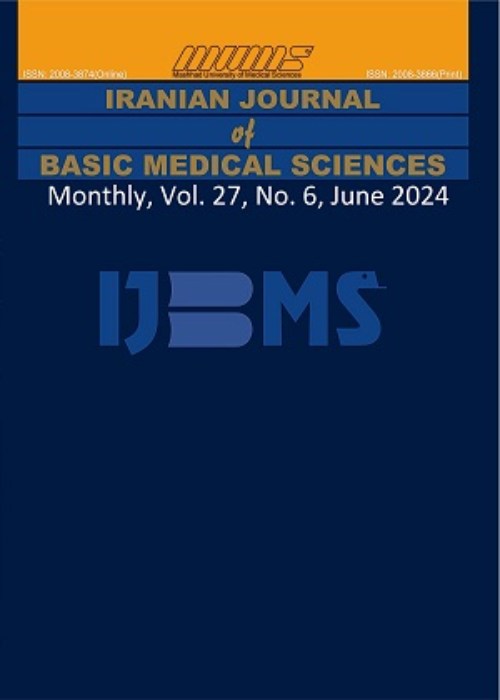Influence of ethanolic extract of Allium sativum on TP53 gene and its anticancer potential in N-Nitrosodiethylamine (NDEA)-induced hepatocellular carcinoma in male albino rats
Author(s):
Article Type:
Research/Original Article (دارای رتبه معتبر)
Abstract:
Objective(s)
Cancer is a group of genetic disorders in which the behavior of the cell is disturbed by mutation and other abnormalities thereby posing as the leading cause of morbidity and mortality globally. Hepatocellular Carcinoma (HCC) is the most common form of liver cancer, highly aggressive with high mortality and incidence rate; and has limited therapeutic options. Most of the conventional cancer chemotherapeutics are associated with undesirable side effects, toxicity, chemoresistance, and high treatment cost, driving the need for a safer and more effective treatment alternative. Medicinal plants and herbs have shown very promising anti-cancer properties which are important for cancer treatment due to their multiple chemical compounds. Materials and Methods
Qualitative screening of the ethanolic extractof Allium sativum was conducted showing the different phytochemicalspresent. The levels of liver function and hematological parameters wasdetermined via spectrophotometric analysis. Polymerase Chain Reaction techniquewas used to assess the gene patterns of Tumorsuppressor p53 (TP53).Results
Phytochemical analysis revealed that Allium sativum has properties that antagonize the proliferating process of carcinogenesis in the liver. The NDEA-group showed significant distortion in the liver architecture characterized by vascular congestion of blood sinusoids, cirrhosis, and congestive hepatopathy while the treated groups showed a reduction in the abnormalities and malignant formation. The treated group showed a significant (P<0.05) increase and restored activities of Alanine aminotransferase (ALT), Aspartate aminotransferase (AST), Alkaline phosphatase (ALP), Bilirubin and hematological parameters (RBCs, WBCs, and Platelets). TP53 gene amplification was significantly (P<0.05) visible after treatment. Conclusion
Ethanolic plant extract of A. sativum demonstrates its anticancer properties by improving the liver architecture, increasing the antioxidant defense systems, and activation of the tumor suppressor (TP53) gene. Garlic extract has anti-proliferating properties and can be used as an alternative mode of treatment and prevention for hepatocellular carcinoma.Keywords:
Language:
English
Published:
Iranian Journal of Basic Medical Sciences, Volume:25 Issue: 4, Apr 2022
Pages:
497 to 505
magiran.com/p2423736
دانلود و مطالعه متن این مقاله با یکی از روشهای زیر امکان پذیر است:
اشتراک شخصی
با عضویت و پرداخت آنلاین حق اشتراک یکساله به مبلغ 1,390,000ريال میتوانید 70 عنوان مطلب دانلود کنید!
اشتراک سازمانی
به کتابخانه دانشگاه یا محل کار خود پیشنهاد کنید تا اشتراک سازمانی این پایگاه را برای دسترسی نامحدود همه کاربران به متن مطالب تهیه نمایند!
توجه!
- حق عضویت دریافتی صرف حمایت از نشریات عضو و نگهداری، تکمیل و توسعه مگیران میشود.
- پرداخت حق اشتراک و دانلود مقالات اجازه بازنشر آن در سایر رسانههای چاپی و دیجیتال را به کاربر نمیدهد.
In order to view content subscription is required
Personal subscription
Subscribe magiran.com for 70 € euros via PayPal and download 70 articles during a year.
Organization subscription
Please contact us to subscribe your university or library for unlimited access!


